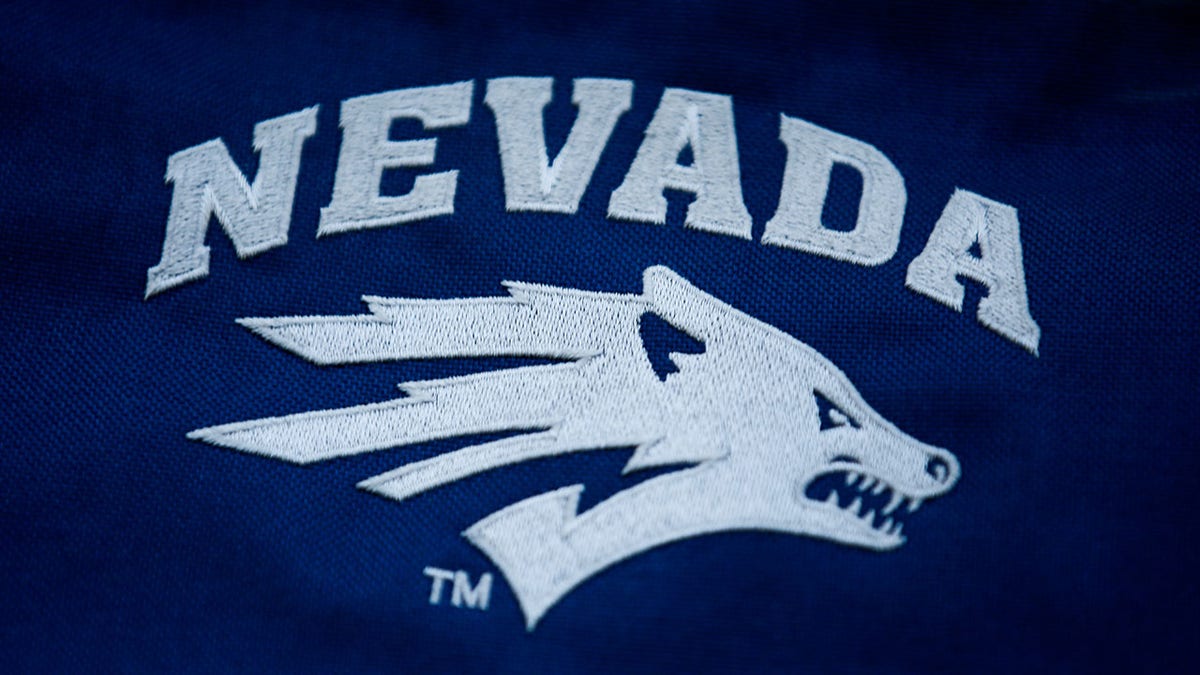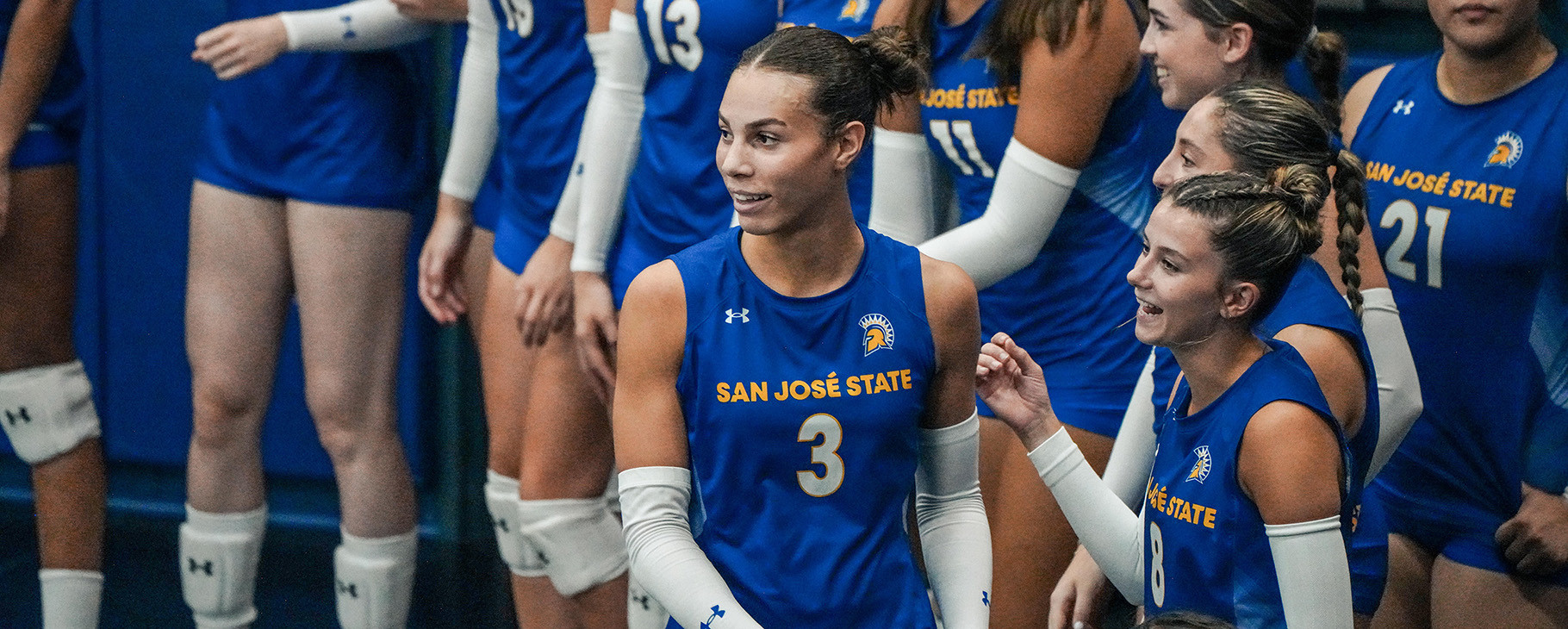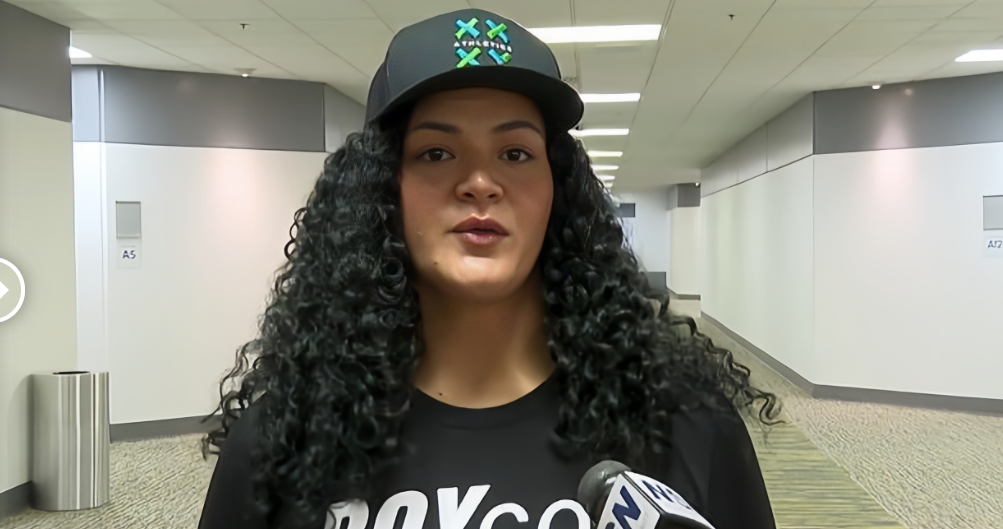The Unfolding Drama
In recent years, the discourse surrounding gender identity in sports has sparked intense debates across various platforms, igniting passionate discussions about inclusion, safety, and fairness. The University of Nevada’s women’s volleyball team, known as the Wolf Pack, has become the center of this storm. The team’s captain, Sia Liilii, publicly expressed outrage over the university’s handling of their concerns regarding competition with a transgender athlete, Blaire Fleming, from San Jose State. This situation not only highlights the struggles female athletes face but also raises pressing questions about how sports institutions navigate the evolving landscape of gender identity.
Here's ads banner inside a post

A Decision to Forfeit
The tipping point for the Wolf Pack came when they decided to forfeit a match against San Jose State, which boasts a roster featuring Fleming, a transgender athlete who stands 6-foot-1 and has been a formidable competitor in her league. The Wolf Pack had communicated their decision to university officials weeks prior, articulating their concerns over safety and competitive fairness. Liilii stated that the team had been clear about their unease regarding potential physical advantages a transgender athlete might have, emphasizing that many of her teammates feared for their safety during the match.

Here's ads banner inside a post
However, just one day before the scheduled match, the university announced it would proceed with the competition, citing a lack of sufficient players to compete. This last-minute decision infuriated the team, who felt disregarded and silenced by the very institution meant to support them. Liilii expressed their collective shock and disappointment, saying, “When the news broke, I was stunned, as many of my teammates were. This is not what we signed up for.” The decision to proceed felt like a betrayal, as it was made without consulting the players who would be directly affected.
Ignoring the Players’ Voices
During a press conference held on a Saturday, Liilii addressed the media alongside her teammates, shedding light on their emotional turmoil. “We felt unsafe and dismissed,” she articulated, a sentiment that resonated deeply within the room. Despite their repeated attempts to meet with school officials to voice their concerns, Liilii explained that they were met with condescension. “We were told that we weren’t educated enough and that we didn’t understand the science. We were told to reconsider our position,” she revealed, reflecting a troubling trend where the voices of female athletes are often dismissed in favor of broader institutional policies.

Here's ads banner inside a post
The lack of acknowledgment from the university left the players feeling isolated and powerless. “Our university had made a decision for us,” Liilii stated, reiterating the feelings of betrayal and disempowerment felt by her and her teammates. “They released a statement on our behalf saying we were going to play. We were not consulted, we were not given a voice, and we did not agree.” This situation highlights a significant disconnect between university administration and the athletes they represent, raising concerns about the priorities of sports institutions.
A Broader Critique of Institutions
As the controversy unfolded, Liilii extended her criticism beyond the university to the Mountain West Conference and the NCAA. During the press conference, she lamented that these governing bodies were failing to protect female athletes, stating, “It should not be this difficult to stand up for women.” Sophomore Masyn Navarro, who also spoke at the conference, added that many teammates had been pressured to remain silent about their feelings on the issue. “We will now take this opportunity to stand up as a team, as some of us have been told to stay quiet,” Navarro declared, reinforcing the importance of solidarity among female athletes in the face of adversity.

The university defended its actions by asserting that their decision-making was guided by legal considerations. A representative from the school stated that a forfeiture based on gender identity could constitute discrimination, potentially violating the Nevada Constitution. This legal justification further complicates the narrative, illustrating the tightrope institutions must walk in balancing inclusivity and compliance with existing laws.
The Impact on Athletes
The fallout from this incident has been profound, with repercussions extending beyond a single match. The players’ experiences reflect broader societal tensions regarding gender identity in sports. Numerous female athletes have come forward, including some of Fleming’s teammates, accusing the NCAA of violating laws prohibiting sex-based discrimination by allowing transgender athletes to compete in women’s sports. This growing discontent raises critical questions about the fairness of competition and the safety of female athletes in light of biological differences.

Fleming herself, having previously played at Coastal Carolina, has established herself as a significant competitor within her conference. Currently ranked fourth in the Mountain West in kills and overall points, she embodies the complexities of this debate. As the first transgender athlete to compete at this level, her presence has prompted other teams, including Boise State, Wyoming, and Utah State, to refuse to compete against San Jose State. Such decisions reflect a rising trend among opponents, highlighting the deep divisions within collegiate sports regarding the participation of transgender athletes.
A Call for Change
As the Wolf Pack grapples with the aftermath of their decision, the need for an urgent reevaluation of policies regarding transgender participation in women’s sports has never been more pressing. The athletes’ collective outcry serves as a crucial reminder of the challenges faced by female athletes amid societal changes. The Wolf Pack’s stand against the university’s decision could mark a pivotal moment in the ongoing discourse surrounding gender identity in sports.

Sia Liilii and her teammates are advocating for a transparent dialogue that respects the voices and concerns of female athletes while promoting inclusivity. Their bravery in speaking out represents a significant step toward addressing the complex issues at play in women’s sports. As they navigate their fears and uncertainties, these athletes are not just fighting for their rights but also for the future of women’s sports as a whole.
Navigating the Future of Women’s Sports
The evolving conversation around gender identity in sports necessitates a collaborative effort from all stakeholders involved—athletes, administrators, and governing bodies. The experiences of the University of Nevada’s women’s volleyball team serve as a crucial case study, highlighting the need for policies that prioritize fairness, safety, and inclusivity. As the NCAA and other institutions confront these challenges, it is essential to ensure that the voices of female athletes are heard and respected.

Moving forward, the focus must be on fostering an environment where all athletes can compete safely and fairly, regardless of their gender identity. The future of women’s sports relies on a commitment to understanding and addressing these complex issues, ensuring that every athlete has the opportunity to thrive in a supportive and equitable environment. The Wolf Pack’s stand is not just about one match; it’s a powerful call for change that echoes beyond the court, shaping the future of sports for generations to come


